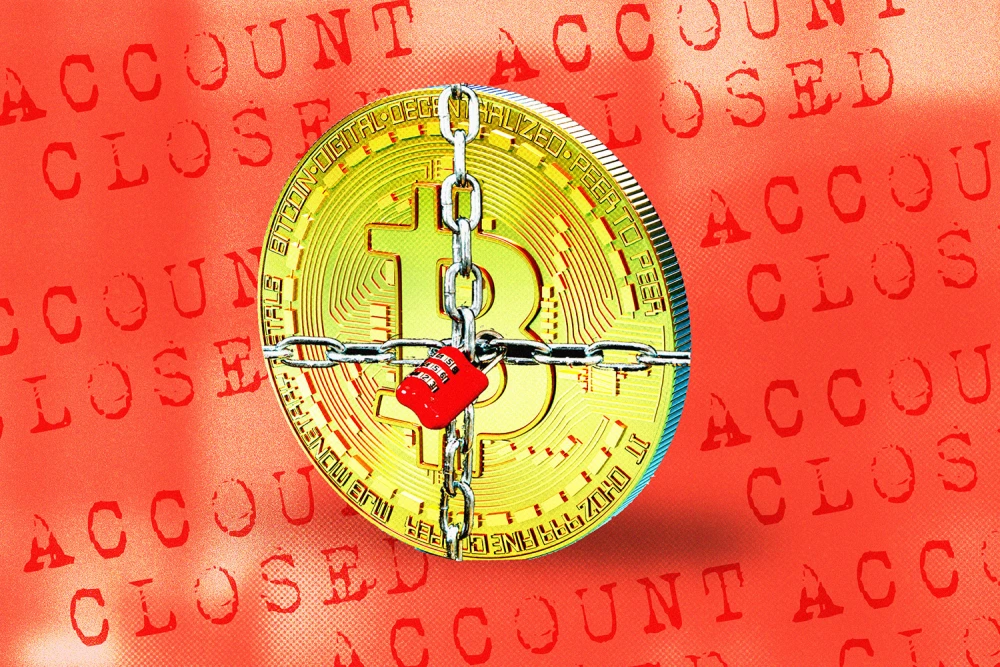Highly influential figures in tech, including Elon Musk and Marc Andreessen, allege the cryptocurrency industry is a victim of banking discrimination.
Cryptocurrencies like bitcoin were conceived as a way to challenge traditional banks. Now, with the help of the tech billionaires Elon Musk and Marc Andreessen, the crypto industry is fighting for something else entirely: the right to have a checking account.
Musk and Andreessen are some of the prominent and powerful voices trying to make a case that crypto industry players are being wrongly discriminated against when they try to work with big corporate banks. The allegation is that banks, under pressure from the Biden administration, have unfairly “debanked” people who work with cryptocurrency by terminating their bank accounts.
The concept of “debanking,” a previously obscure term, has received fresh attention in the past month after Andreessen, an investor and co-founder of Netscape, said in an interview with podcast host Joe Rogan that he knows 30 tech company founders who had been “debanked in the past four years” — a claim that set off a flood of anecdotes from social media users complaining that they, too, had lost access to their bank accounts.
Musk said on X that debanking is an example of “how evil the government has been” and that it should be a federal crime if it’s politically motivated.
It’s an allegation that various federal regulatory agencies reject as untrue. The Office of the Comptroller of the Currency, which charters and supervises all national banks, said that it expects banks to assess the risks of their customers on a case-by-case basis.
“The OCC does not direct banks to open, close, or maintain individual accounts. Nor does the OCC recommend or encourage banks to engage in the wholesale termination of categories of customer accounts,” the office said in a statement.
The White House referred questions about the Musk and Andreessen statements to the Treasury Department, which declined to comment.
There is no guaranteed right to banking services, and Andreessen and Musk both have a history of making inflammatory political statements. But their comments about debanking appear to have tapped into a well of discontent among crypto enthusiasts, right-wing activists and even bank lobbyists about how traditional banks are operated in the U.S.
Many crypto firms must navigate a maze of government regulations designed to ensure their services aren’t used for money-laundering by criminals, terrorist organizations or rogue governments such as North Korea. It’s an area with so many compliance requirements that some banks decide it’s not worth the trouble, especially if the customer is a tiny startup.
JPMorgan Chase, the nation’s largest bank by assets, said that regulators do expect banks to close accounts quickly when there’s a risk of financial crime, or else face potential billion-dollar fines.
“The complexity of managing such compliance is often simply too high for some businesses where there are challenges in monitoring for risk,” the bank said in a statement. “We welcome the opportunity to work with the new Administration and Congress on ways to remove regulatory ambiguity while maintaining our country’s ability to address financial crime.”
Now, Musk and Andreessen are pushing for massive changes in the banking sector, using their newfound political influence with President-elect Donald Trump to help the cryptocurrency industry and others who they say have been unfairly cut off from traditional banks.
Andreessen’s investment firm, Andreessen Horowitz, argued in a blog post last month that “everyone has the right to a bank account — even crypto companies,” and in a follow-up last week it denounced “compliance headaches” in general.
Musk, in response to an X post last month about debanking, called for “deleting” the Consumer Financial Protection Bureau, saying there are “too many duplicative regulatory agencies” — even though the CFPB has denounced the practice of debanking and vowed to help fight it.
The CFPB, whose director, Rohit Chopra, was appointed by President Joe Biden, is currently fighting in a federal appeals court for the authority to investigate debanking allegations. Last month, the CFPB finalized a rule to oversee payment wallet apps, saying it wants to stop them from unfairly debanking customers. The rule means the CFPB could one day regulate Musk’s X if Musk follows through on adding a payments service to the social media app.
Last week, in a victory for the crypto industry, Trump said he would appoint the venture capitalist David Sacks, an industry ally, as his “White House A.I. & Crypto Czar.” Sacks has for years argued against debanking, including telling The Free Press in 2022 that his former company, PayPal, is wrong to ban extremists. Trump has also said he’ll nominate Paul Atkins, a longtime crypto advocate, to be chair of the Securities and Exchange Commission.

Trump during the campaign wooed crypto industry support in part by talking about debanking.
“They target your banks. They choke off your financial services,” he told the Bitcoin 2024 Conference in Nashville, Tennessee, in July. A month later, he said he wanted to make the U.S. the “crypto capital of the planet.”








